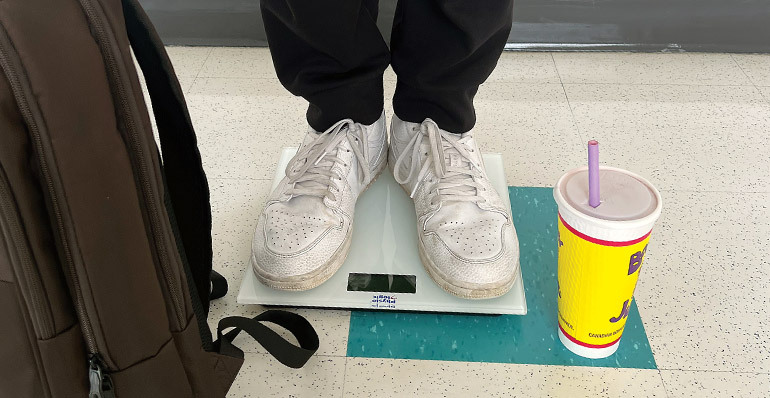Let’s lose the “Freshman 15” once and for all

The “Freshman 15” is a well-known tale of woe referring to the extra weight young adults supposedly pile on during their freshman year at college or university. Moving away from home is fraught with emotions; it’s exciting but also emotionally and psychologically confusing. But should potential weight gain be a serious enough issue to warrant its own warning label? Is it not time for society to stop piling on the shame and lose the obsession with body image rather than obsessing over losing weight?
Lindsey Thomson, a registered psychotherapist and founder of Momentum Mindset said that “Freshman 15” is a common example of click-bait misrepresentation of research, exaggerated by society’s culture of projecting shame around trying to fit in with what a body should look like.
“The term has been around since the 1980s in various lifestyle magazines,” Thomson said. “A fear-based, body-hating social rhetoric phenomenon…no evidence supports that young people will gain 15 pounds during this transition period. The research shows that it’s between two to six pounds on average.”
According to Thomson, young men and women are struggling more and more with anxiety, depression, disordered eating, and body dysmorphia, a direct result from unrelenting, unhealthy and unrealistic beauty standards that a few large corporations in power are dictating.
“When we combine the pressure to fit in and look a certain way, and then we layer this with the stress from a major life change, like starting university or college, we can expect that one’s mental health will suffer,” Thomson said.
Our relationship with our bodies is the one that sets the precedent for all other relationships we will have in our lives. It’s vital we learn how to develop and nurture it so that it provides a healthy and strong foundation for us to build on.
Jennifer Broxterman, a registered dietitian from NutritionRX here in London said that in her practice, she deals with a lot of eating disorders, recovery, prevention and having an overall healthy relationship with food.
“What we always want people to think about is how do they have a happy, healthy and supportive relationship with food,” Broxterman said. “Both the food and the relationship you have with it should be nourishing.”
Broxterman said the approach she takes to create a more encouraging relationship with ourselves is to think about pushing our inner bully voice to the side. The inner bully voice she refers to is that mean and critical voice we all have inside and instead bring in two other voices that are more supportive.
Broxterman said the first voice is our “curious detective.”
“The curious detective is neutral,” she explained. “Its job is to make observations and basically alert us to discoveries about ourselves.”
“So many of us are disconnected from our bodies [and] the beauty of how our bodies are resilient, strong and everything they do for us.”
An example she gave was noticing the freedom you have in choosing what to eat when you have a pre-loaded meal card as opposed to eating meals prepared at home with your family. The point of this voice is just to notice and name what is going on.
The next voice Broxterman refers to is our “wise guide” or “our mentor.” The mentor holds our best intentions at heart.
It looks ahead to the future of where we would like to see ourselves and, like a supportive friend, tries to help us break down our goals into smaller steps without judging.
“If we trip or fall, take a little bit longer or just need to stay in place for a while because life is busy and stressful, this voice is there to support that.”
According to Broxterman, it’s very normal to notice a body composition change when living away from home in a new environment for the first time. Broxterman tried to get across that it is important to have a ton of curiosity, a ton of grace, a ton of kindness and a ton of resiliency and to remember that our body needs to change to match different changes of our life cycle.
Thomson also works with many individuals on changing their relationship with their bodies and how they nourish themselves.
“We look at developing self-worth and self-acceptance rather than self-love,” Thomson said. “So many of us are disconnected from our bodies [and] the beauty of how our bodies are resilient, strong and everything they do for us.”

